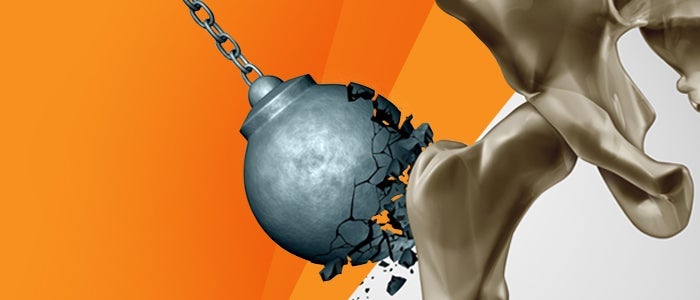
Check your bone density - know your osteoporosis risk
Check your bone density - know your osteoporosis risk

As we age, we lose bone, therefore our bones become less dense and more prone to fractures—this is osteoporosis. Known as the "silent disease," it shows no symptoms until a fracture occurs, making it harder to treat and often leading to additional breaks, significantly affecting quality of life.
Globally, one in three women and one in five men over the age of 50 will experience an osteoporotic fracture, according to the International Osteoporosis Foundation.
Know your risk and act now
Understanding your osteoporosis risk and taking steps to protect your bone health can help prevent or delay the onset of this condition.
Genetics: Family history of osteoporosis or low-trauma fractures increases your risk.
Previous fractures: Having one fracture doubles the risk of another, especially within 5-10 years.
Gender & age: Women are more prone to osteoporosis due to oestrogen loss after menopause. Men are also affected, though at a slower rate as testosterone decreases with age.
Falls: A history of falls increases the likelihood of fractures. Fear of falling can lead to reduced activity, further weakening bones and muscles.
Medications: Long-term use of drugs like prednisone or thyroid hormone replacements can heighten osteoporosis risk. Your doctor may recommend a bone density test in these cases.
Other conditions: Diseases like hyperthyroidism, coeliac disease, and rheumatoid arthritis (especially with long-term prednisone use) increase osteoporosis risk.
Monitor your bone health with bone densitometry (DEXA)
Bone densitometry (DEXA) is a specialised x-ray that measures bone mineral density (BMD) in key areas like the spine, hips, and wrist. It’s the most accurate way to assess bone strength and the risk of fractures. For the most reliable results, repeat scans should be done at the same location using the same machine.
Learn more about a bone densitometry scan here.

Book your bone density scan at I-MED Radiology NZ
Bone density services are available at:
You can schedule your bone density scan by choosing one of the following options:
1. Online booking: Request an appointment through our online system, and our team will contact you to confirm a time.
2. Email: Reach out via email to request a booking at waikato.dexa@i-med.co.nz
3. Call: Contact our clinic directly to speak with our team and arrange an appointment.
Is there a cost involved?
If you are referred by a doctor as part of your hospital care, there is no charge for the scan. However, if you choose to self-refer for peace of mind or reassurance about your bone density, an out-of-pocket cost will apply. This allows you to take proactive steps in monitoring your bone health, even without a doctor's referral.
